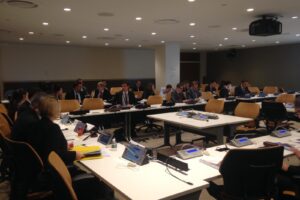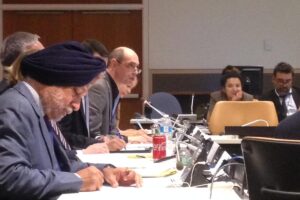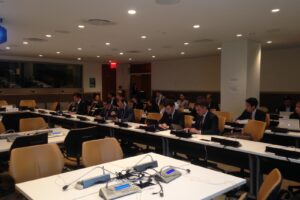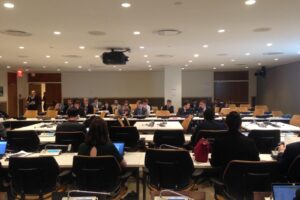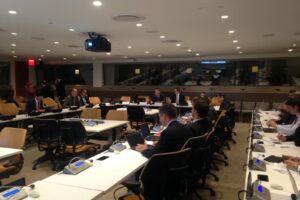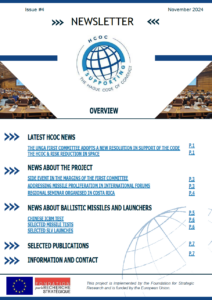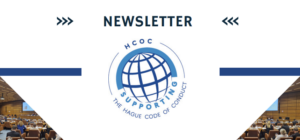Side event on HCoC in the margins of the UNGA in New York
12 October 2018
On 12 October 2018, on behalf of the European Union, the FRS organised a side event on the Hague Code of Conduct and Ballistic Missile Non-Proliferation, in the margins of the 73rd session of the United Nations General Assembly in New York.
This event, which took place at the United Nations headquarters, included a series of presentations followed by a discussion, and brought together representatives from both subscribing and non-subscribing States, and officials from the European Union, with a view to raising awareness of the Code with regard to non-subscribing States and discussing the current and future trends and challenges pertaining to ballistic missile proliferation.
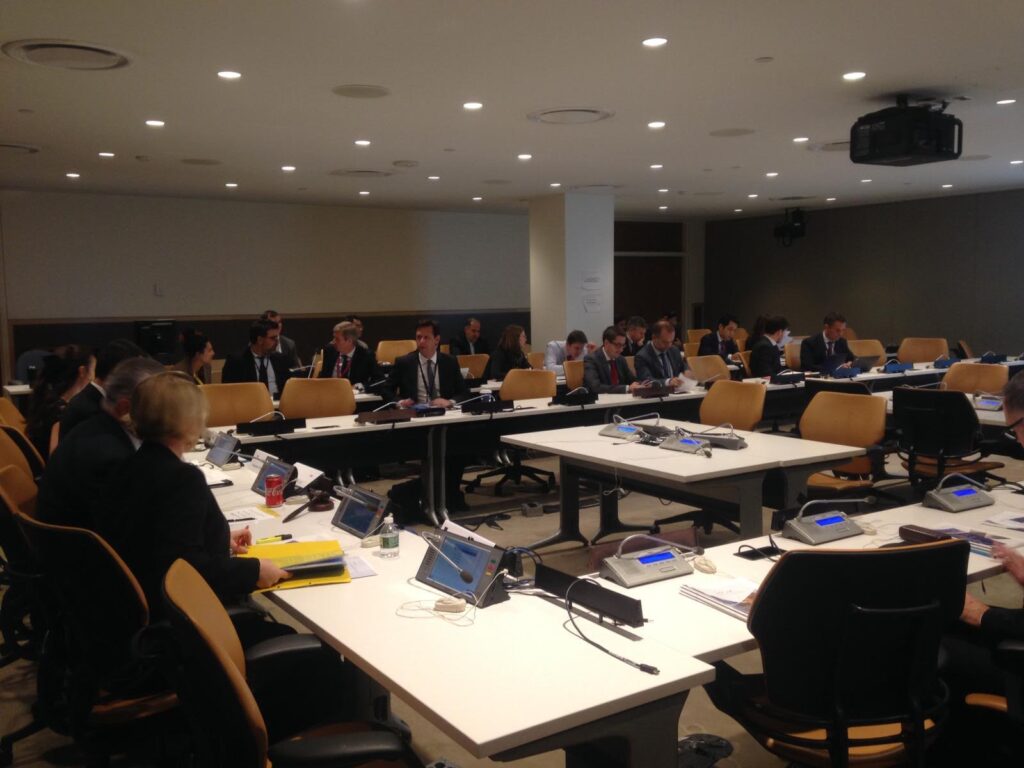
AGENDA
WELCOMING REMARKS
- Amb. Ann-Sofie NILSSON, Ambassador for Disarmament and Non-proliferation; Sweden, HCoC Chair
- Alexandre HOUDAYER, Secretary General, Fondation pour la Recherche Stratégique
- Amb. Jacek BYLICA, Principal Advisor and Special Envoy for Non-Proliferation and Disarmament, European External Action Service
I/ CURRENT STATE & PERSPECTIVES OF MULTILATERAL INSTRUMENTS CURBING BALLISTIC PROLIFERATION
PRESENTERS:
- Emmanuelle MAITRE, Research Fellow, Fondation pour la Recherche Stratégique
- Raphaël PRENAT, Coordinator of the Group of Experts, Committee established pursuant to resolution 1540 (2004)
- Waheguru Pal Singh SIDHU, Associate Professor, Center for Global Affairs, New York University
KEY ISSUES:
- UN initiatives to curb ballistic proliferation
- The integration of the HCoC in the multilateral norms to deal with ballistic proliferation
- Challenges and perspectives to address ballistic missile proliferation
DISCUSSIONS
